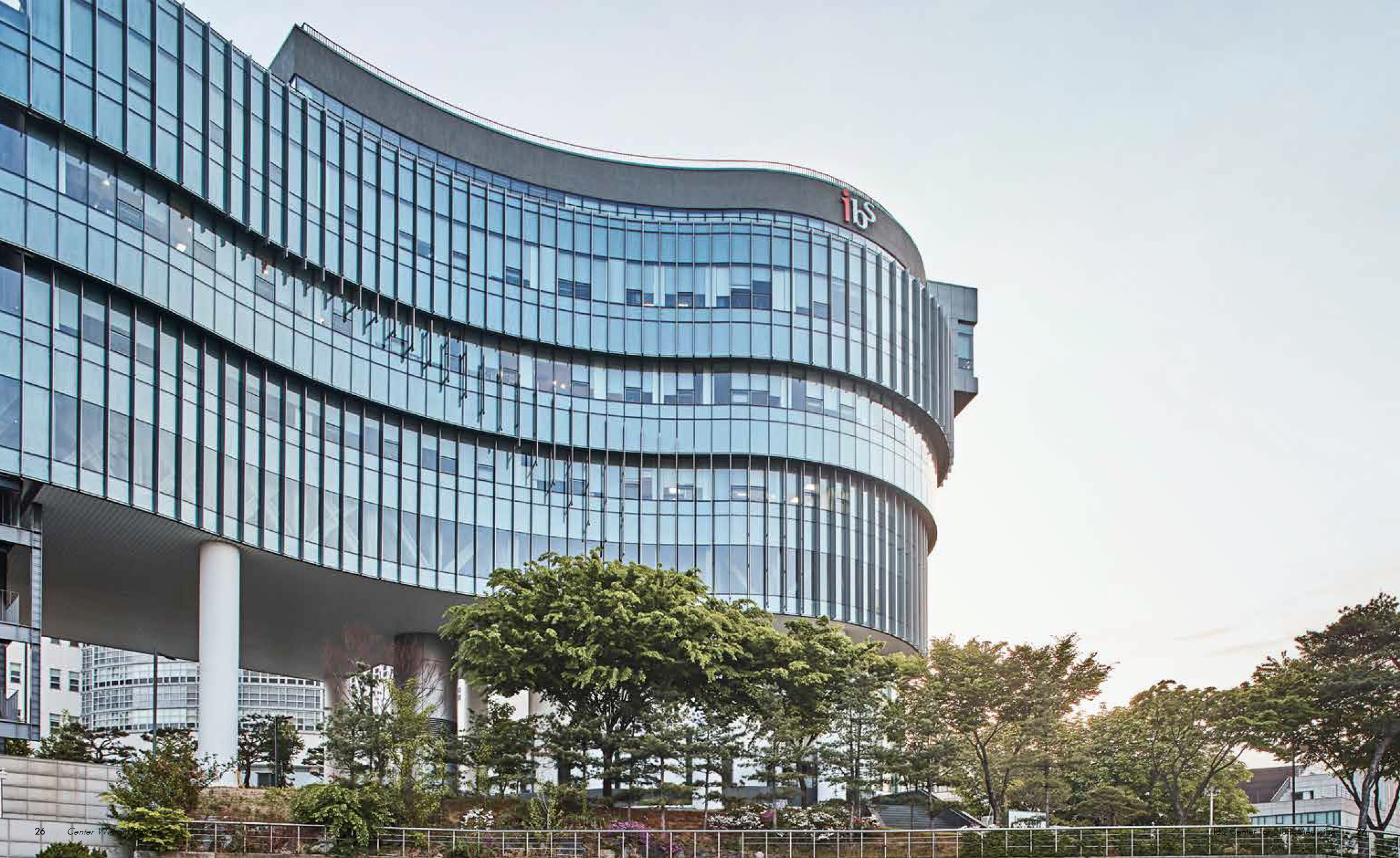- Advanced Science Institute April 05, 2021
-
Preparing a bridgehead for world-class basic science research
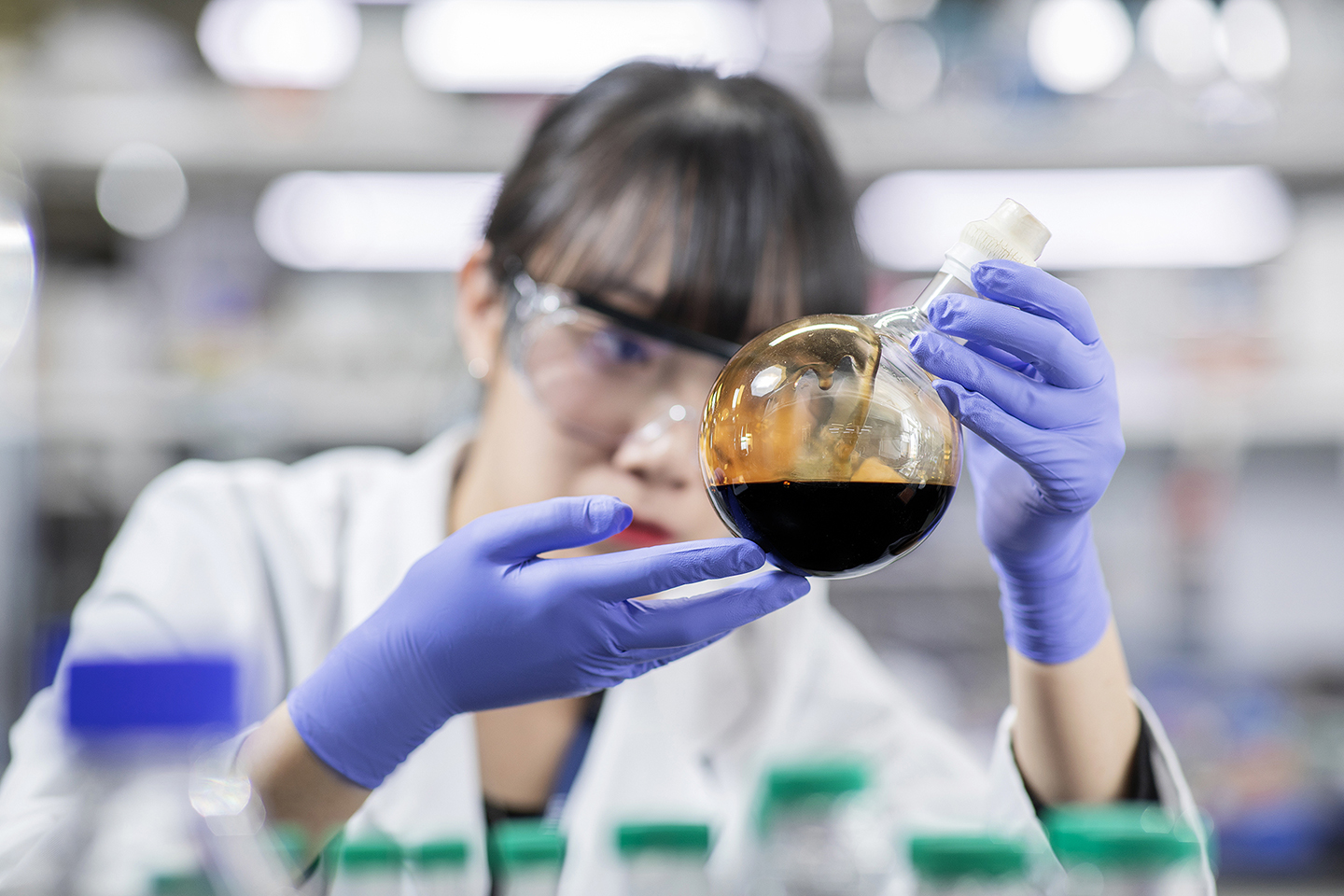
Yonsei University in Seoul, South Korea, which has been striving to strengthen its research capabilities, attracted the Institute for Basic Science (IBS) research group in 2015 and established the Advanced Science Institute directly under the President, which serves as a basis for world-class basic science research. IBS was created as a national institution to upgrade Korean science to a world-class level. As a head of the research group of IBS, our university’s Professor Jinwoo Cheon (Department of Chemistry) is leading the development of innovation and convergence research in basic sciences.
The Advanced Science Institute aims to pioneer innovative academic fields and enhance global research competitiveness by securing creative knowledge and original technology through world-class basic science research and education. It has a graduate course, Nano Biomedical Engineering, and the Center for Nanomedicine under the IBS, established under Article 14 of the ‘Special Act on the Creation and Support of International Science Business Belts.’ Through this, the Institute promotes the mid- to long-term and continuous development of basic science education and research.
Optimal Research Environment Where You Can Solely Focus on Research
The IBS Hall, a building used by the Advanced Science Institute, was built in 2018 to create an optimal research environment in which researchers can concentrate solely on research. It is a standalone building for the Advanced Science Institute, with a total floor area of about 4,300 square meters(㎡) with 4 stories above ground and one basement level. The building is created under the theme of a ‘center without barriers’ and serves as a core space for ‘researcher-centered,’ ‘collaboration-induced,’ and ‘promotion of creativity,’ preparing for an academic leap in such independent space.
Each floor of the IBS Hall is designed to be organically connected so that research topics of nano/bio/nano-bio convergence can be combined with each other to converge on a single research topic called ‘nanomedicine.’ To this end, each floor has a Core Facility, so that material synthesis and analysis, nano-bio device fabrication, and nanomedicine research can be effectively carried out in one building.
The interior of the IBS Hall with the motto of 3C, namely ‘communicate,’ ‘collaborate,’ and ‘create,’ was removed or installed with transparent glass walls when necessary. A staircase of communication was introduced to enable smooth collaboration among members. Furthermore, it introduced a separable design that guarantees the safety of researchers as a top priority. It also secured a space for relaxation and communication to promote creativity.


Convergence Science Education Program, ‘Nano BME’
A graduate program for convergence science education is currently run under the Advanced Science Institute. Previously operated as a ‘Nano Materials and Biomedical Interdisciplinary Program,’ this program was restructured as the ‘Nano Biomedical Engineering (BME)’ major in 2019 to expand the range of participating professors and clearly reveal its characteristics. It is laying the foundation for the continuous research and development of the Nanomedicine Research Center by cultivating talents necessary for the development of nanomedicine and convergence research.
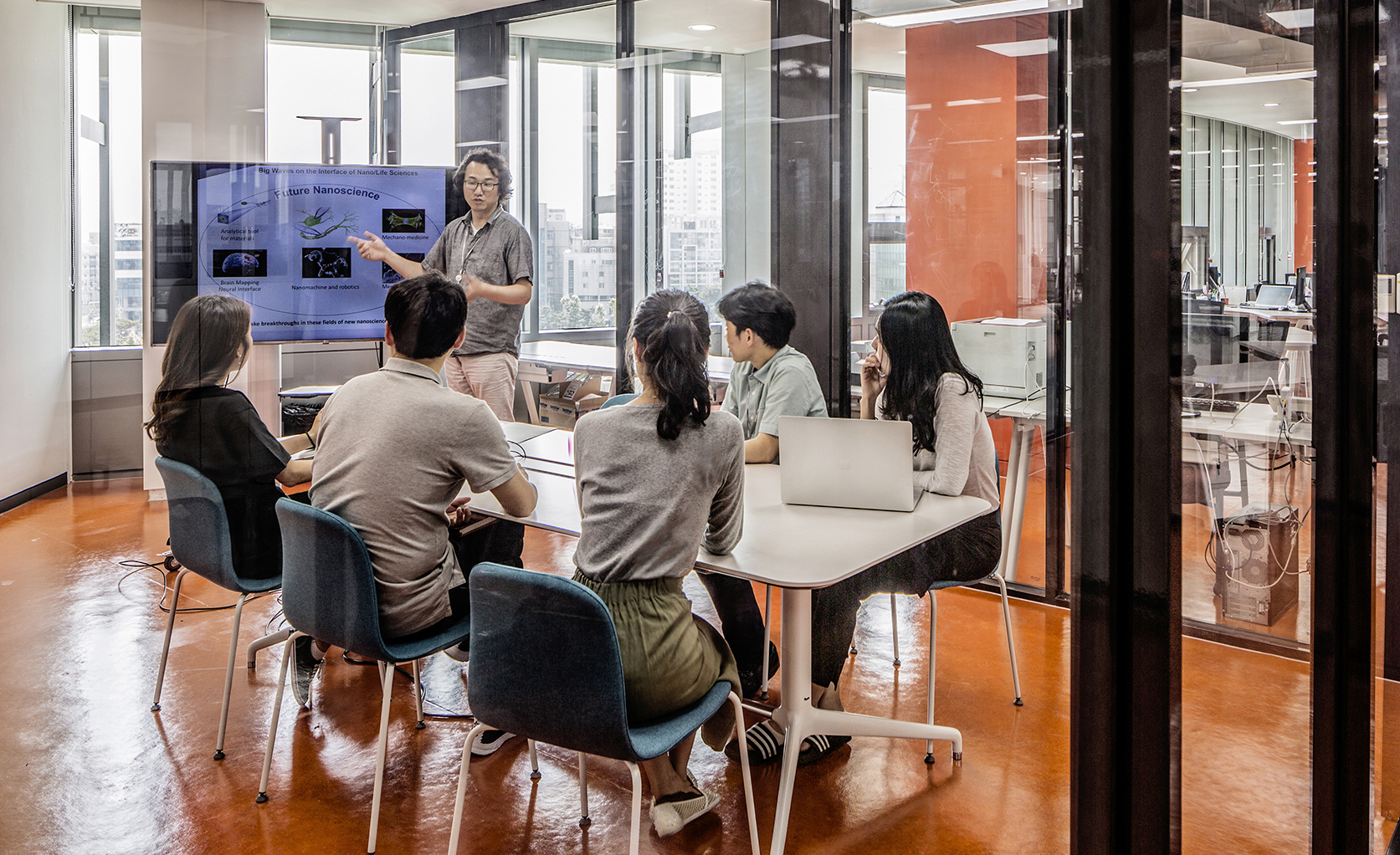
Nano BME is recruiting students for a master’s, doctoral, and an integrated master’s and doctoral degree program. Students from various majors such as chemistry, physics, new materials engineering, biotechnology, and medicine are being admitted. Not only does the major provide an excellent research environment and curriculum, but it is also achieving research outcomes through academic convergence and expansion.
Within Yonsei University, the Advanced Science Institute signed a business agreement with Underwood International College (UIC) to provide students majoring in Convergence Science and Engineering at UIC with an opportunity to participate in the research of the Nanomedicine Research Center. As a result, many students have entered the Nano BME course. They are participating in bringing excellent research outcomes such as thesis and patents as a member of the research team of the Center.
Nanomedicine Research Center’s Progressive Research
Until today, research on nanomaterials has focused on controlling the size or synthesizing various types of nanomaterials, such as spheres, rods, tubes, and plate-like shapes. It was found that physical and chemical properties of nanomaterials are greatly influenced by the size and shape factors, but its characteristics are not optimized to the level of showing only the applicability of a biological system as nanomaterials developed to date have simple structurers, components, and functions. However, a more advanced concept of nanomaterials than the current ones are needed to precisely and accurately observe, understand, and control complex life phenomena.
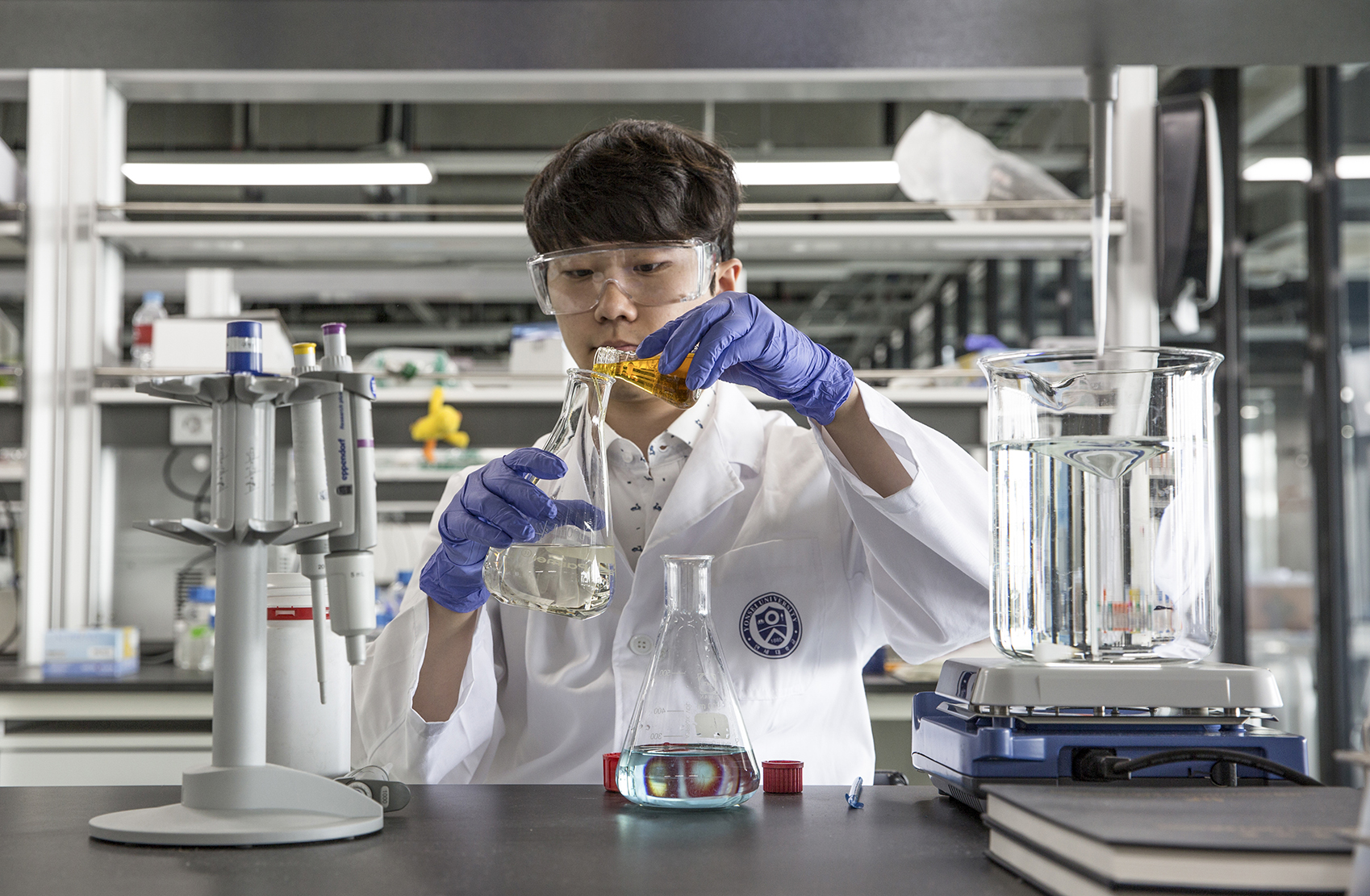
The Nanomedicine Research Center aims to develop evolutionary nanomaterials that can precisely implement various physical properties required for life science and medicine at a desired time and place, and observe, understand, and control life phenomena at the molecular and cellular level. It also aims to establish precision nanomedicine based on nanoscience, and through this, it intends to make a breakthrough in accurate diagnosis and precise treatment of major diseases. In the future, it will introduce new nano-tools such as cell precise analysis control platform, nano-bio imaging platform, and remote control technology of animal behavior into the life system, and show the possibility of putting them together with medicine.
● Theme 1. Development of Evolutionary Nanomaterials: Draft, design, and synthesize new concepts of evolutionary nanomaterials that have desired properties by using external environments or stimuli.
● Theme 2. Single-cell Nanosciences: Closely observe complex life phenomena at the molecular level through the development of evolved nanomaterials and devices using the same, effectively control life phenomena through the development of further optimized and bio-friendly nanomaterials and nanodevices by understanding the interaction between nanomaterials and life systems.
● Theme 3. Development of precision nanomedicine system: Develop a nano platform based on evolved nanomaterials and nanodevices to control and analyze life phenomena at the molecular and cellular levels, enabling more precise and efficient cell control, as well as establishing high-magnification imaging or disease diagnosis techniques. Additionally, clarify the principle of operation of the precision nano platform in animals and successfully introduce it, and then ultimately establish precision nanomedicine by applying it to medicine such as diagnostic treatment.
Spreading a Wider Science Culture
The Advanced Science Institute conducts world-class basic science research and education. It aims to become a first-class basic science research center in the university by looking ahead to the next 100 years. It strives to create ‘big science’ by becoming the ‘first mover’ of science, and will contribute to preoccupying the future science through the Nano BME major that combines nanoscience and medicine.
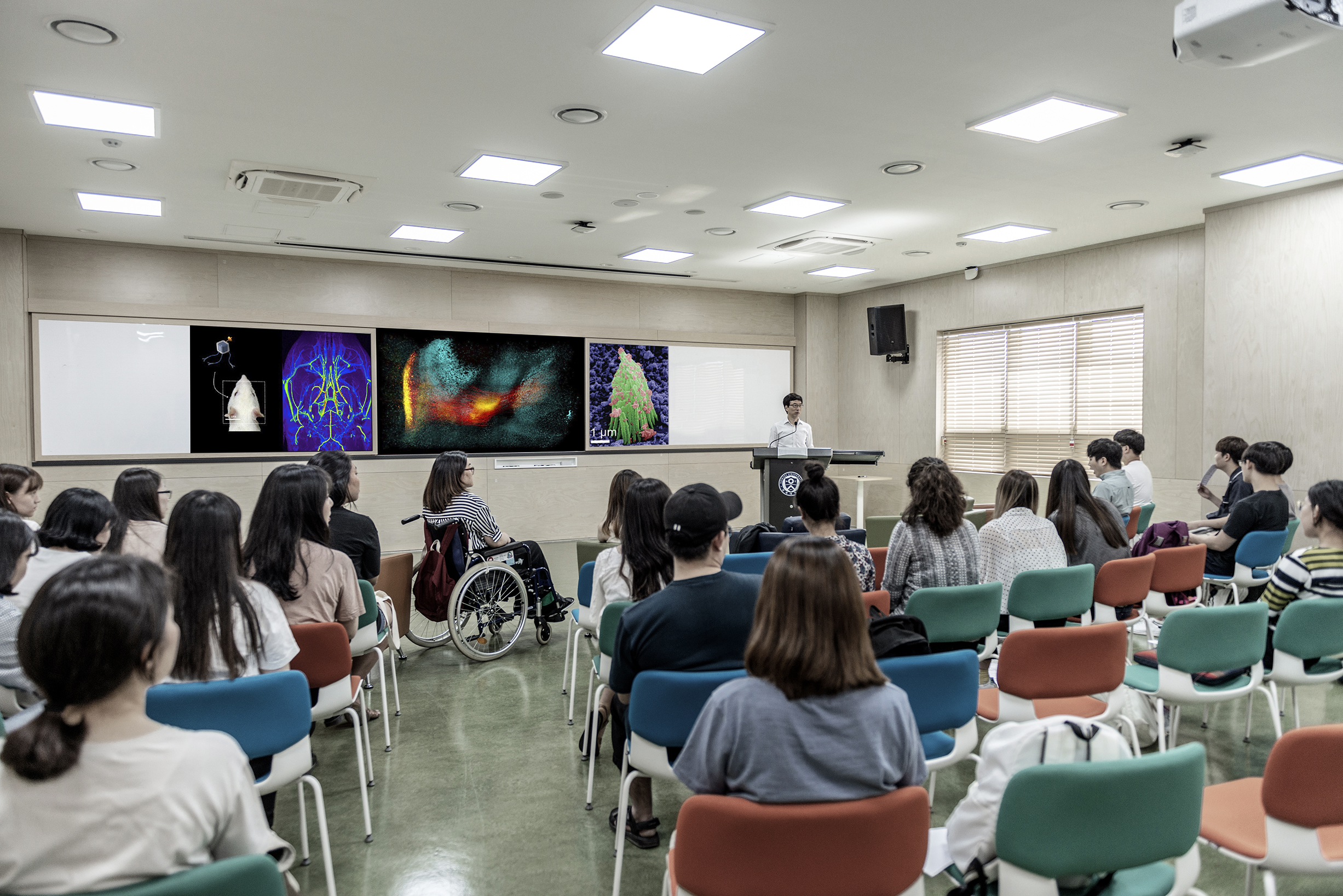
We met with Professor Jinwoo Cheon, who leads the Advanced Science Institute, Minji An, who is a Ph.D. student in Nano BME, and Kyung Min Lee, a manager at the Administrative Support Team, to hear the Institute’s aspirations to become the ‘first mover’ in science.
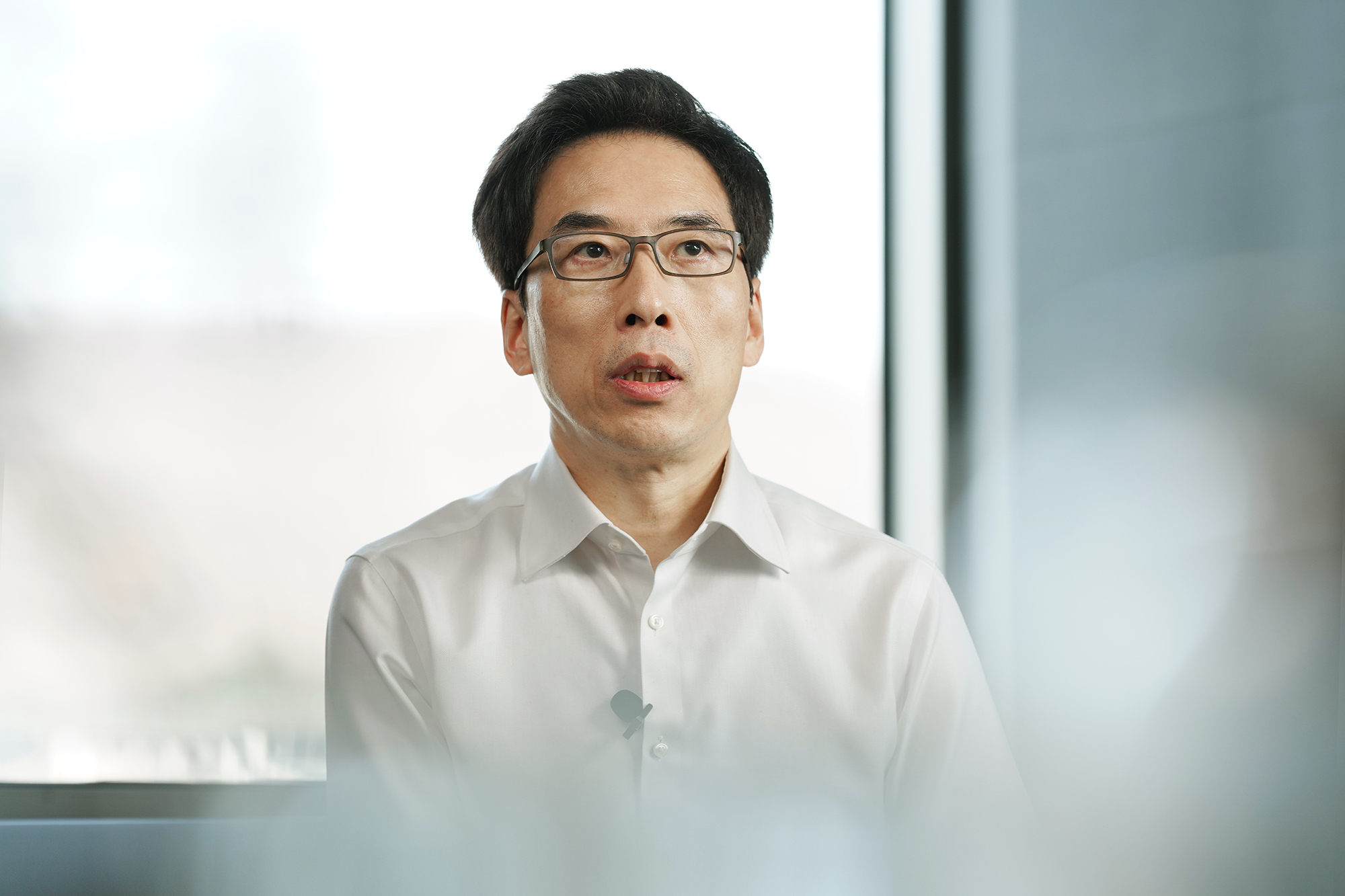
“The Advanced Science Institute was established to pioneer innovative academic fields
and achieve world-class research competitiveness by attaining creative knowledge and
original technology through world-class basic science research and education.
It will provide an opportunity to advance the next 100 years of basic science
through Nano BME major, which combines nanoscience and medicine education,
and Nanomedicine Research Center."Jinwoo Cheon / Director, Advanced Science Institute; Director, IBS Center for Nanomedicine

“The essence of nano is not limited to ‘very small things’.
I think there is rather a greater meaning in ‘convergence and expansion’
that extends across a large number of fields.
I’m currently enrolled in a Ph.D. program in Nano Biomedical Engineering.
I’d like to derive research results that can take one step closer to accurate diagnosis
and precise treatment of diseases through nanomedical research,
which combines nanomaterial research with life science research.”Minji An / Ph.D. Student in Nano BME
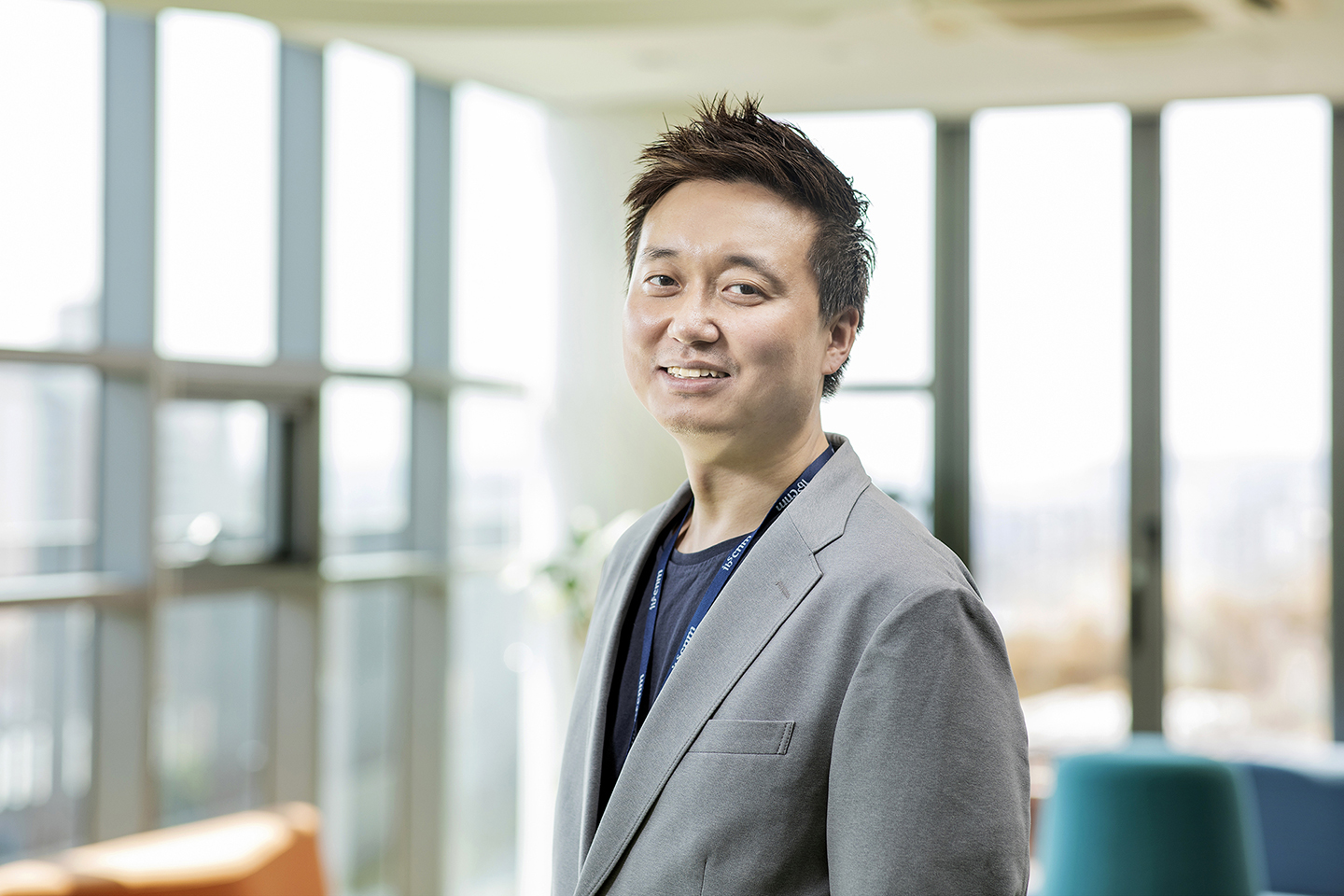
“The Advanced Science Institute is serving as a global hub for basic science
by introducing world-class facilities and advanced research-intensive administrative systems,
as well as recruiting foreign scholars.
There are 17 faculty members, 6 overseas scholar advisors, 14 researchers. 28 degree students,
as well as 10 research and administration staff from administrative team,
who are fully devoted to a long-range project of basic science.”Kyung Min Lee / Manager, Administrative Support Team, Advanced Science Institute
show mobile menu
mobile menu

